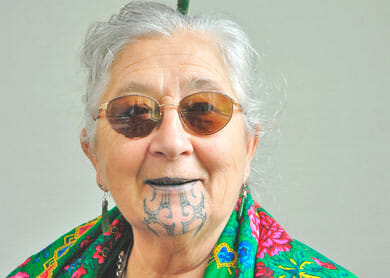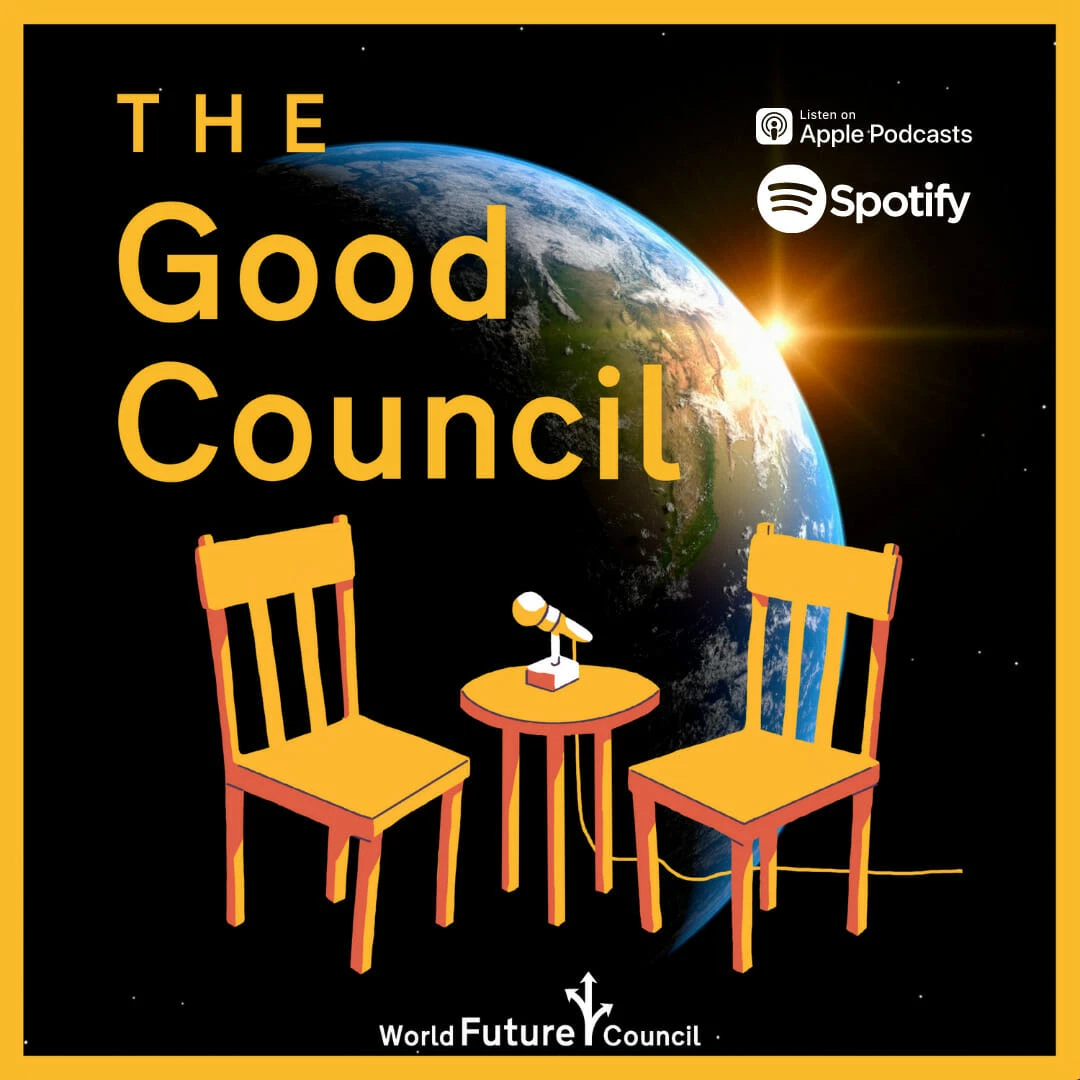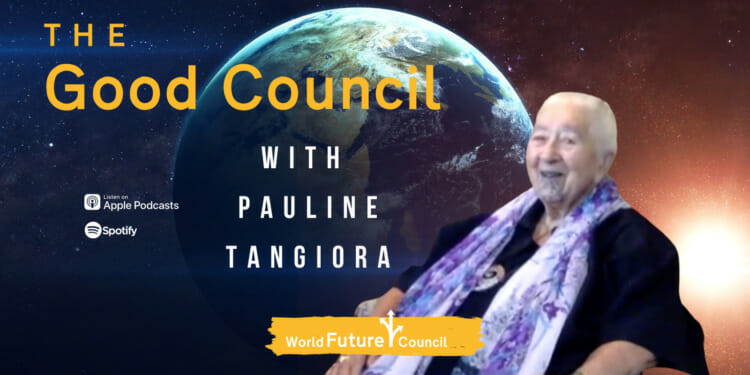This is the fourth article in the series “The Good Council”, based on the podcast from the World Future Council. It gives a behind-the-scenes look at the organization’s trajectory, from revolutionary idea to reality, and offers insights on its current agenda. The Good Council podcast provides inspiration, laughter, and food for thought through intergenerational dialogue between its founders, senior Councillors, and young entrepreneurs and activists from around the globe.
 For the sixth episode of The Good Council, we had as our guest Pauline Tangiora, Honorary Councillor of the World Future Council. She is a daughter, mother, and grandmother, not only to her family but to many people around the world. Pauline fights for environmental rights and peace and disarmament, and is an advocate for intergenerational dialogue. We set out to learn more about Pauline’s tireless efforts for the advancement of indigenous communities on the global stage, and what her message to current and future generations is.
For the sixth episode of The Good Council, we had as our guest Pauline Tangiora, Honorary Councillor of the World Future Council. She is a daughter, mother, and grandmother, not only to her family but to many people around the world. Pauline fights for environmental rights and peace and disarmament, and is an advocate for intergenerational dialogue. We set out to learn more about Pauline’s tireless efforts for the advancement of indigenous communities on the global stage, and what her message to current and future generations is.
Annika: Maori people believe in Kaitiakitanga, which can be translated into trusteeship (of the Earth). What does this fascinating concept mean, and what does it entail?
Pauline: That number one, you have a responsibility for yourself. Mother Earth is your guiding light. For instance, if I can’t hear the frogs, I know something’s wrong with the environment. Climate, and the environment are not two separate things, they work together. That’s how indigenous people see the circle is all complete. But once you start taking one thing out of the circle, and talking about just the climate, or the environment, or health, then you’ve lost the whole concept of being Kaitiaki (guardians). Because everything in that circle makes up the life force of a person, and your whole person is within that circle. So, if you’re a Kaitiaki, you must be able to stand for what you believe is right, but you can’t always get everybody to agree with you.

A: You have a rich experience on the international stage. What did you learn from representing indigenous communities on the world stage?
P: I can never represent indigenous peoples, but I can be the voice to carry to the UN. For instance, the people in South Africa wanted their land back, the bush people, but they could not get into the UN. And through Women’s International League for Peace and Freedom, we could get into the UN, and have a voice because you must be accredited. We managed to get into the UN and put their case so that at the World Environmental Conference at the beginning of 2000, I was very humbly honoured by the government taking me up to see that the bush people. They will be given the land back because the pressure of the UN on the South African government pushed it so that those bush people will now have their land back. So, I think that we must be available for other indigenous peoples—or any person—to voice their concern. The honour is not ours; the honour is of those people whom we are the voices of.
A: You also dedicate your life to peace and disarmament and the abolition of nuclear weapons, which is a core concept of the World Future Council. What are your hopes for how we can improve the current devastating situation?
P: Number one: If you stop the wars, you help to stop the destruction. We don’t need nuclear bombs. You don’t need nuclear fallout. That’s how simple it is… War does not bring peace to anyone. If you look around the world today, the wars are a destruction, killing humanity on every continent. It’s very simple. Stop the wars and start living peacefully together.
A: To live peacefully together, conversation is key. Being in this intergenerational dialogue, how exactly do you practice intergenerational living?
P: Well, it’s a difficult question to answer. By bringing on board, over the few years that I’ve travelled overseas, a younger person with me. As Maori, we usually do things together, not on our own. And that’s the way that we have been doing it for several years. My travels overseas haven’t been for me, they’ve been for the younger people to learn so that they can carry on to the future . That’s the way our people live, by sharing what knowledge we have. So, everybody is on board, because different generations have different values. And if we can’t dialogue with that generation what is happening there is a generation gap if we are not understanding or not sharing that knowledge.

A: Let’s look at our relations with others, how do you for example think about your relationship with your children and grandchildren?
P: I remember one of my grandchildren, when he was three years old, he decided he was going to climb a tree out at the back of my place. He got up to two or three branches and then he looked up at the sky and he said “Nanny, one day I’m going to climb up this tree and climb and have a look at the sky”. That’s some proof of how young people learn things. And when he comes back now and again, he has a look at that tree and says “see, that tree has grown taller”. And I said, “Well, when are you going to climb up?” And he said, “well, it’s not yet up to the sky”, so he’s got the idea that the tree will keep growing—simple things like that.
I think it’s very important to encourage our young people to continually come together to talk with their elders. And the elders don’t lose anything, and young people show them that you might have to have another look at your worldview. One of the basic things about the worldview of indigenous thinking is: Never forget that you are the creation of the Creator. Unless you continually remember that you are not here to serve yourself, you’re here to look after and be with your people.
A: Do you have any advice for young people?
P: First you need to look at your community – what you can do to help your community, to listen to the community’s needs, without condemning people. So, to young people, never be afraid. You can respect the elders, but elders must earn that respect from the young people as well.
And that comes through that spirituality of humanity. And I sit here because I can’t see very well with my eyesight, but I can hear the birds, and I still have peripheral vision. And I often think well, simple things like listening to the birds, and watching the seasons change from my peripheral vision. I am blessed to be able to do that now. So young people have that blessing of being able to see these things, and I hope the elders sit with them sometimes and talk to them about learning and try and help them gather information to share with others because we don’t hold anything to ourselves.
Editor’s Note: The opinions expressed here by Impakter.com contributors are their own, not those of Impakter.com. — In the Featured Photo: Pauline Tangiora in conversation with The Good Council’s Annika Weis. Photo credit: Annika Weis










